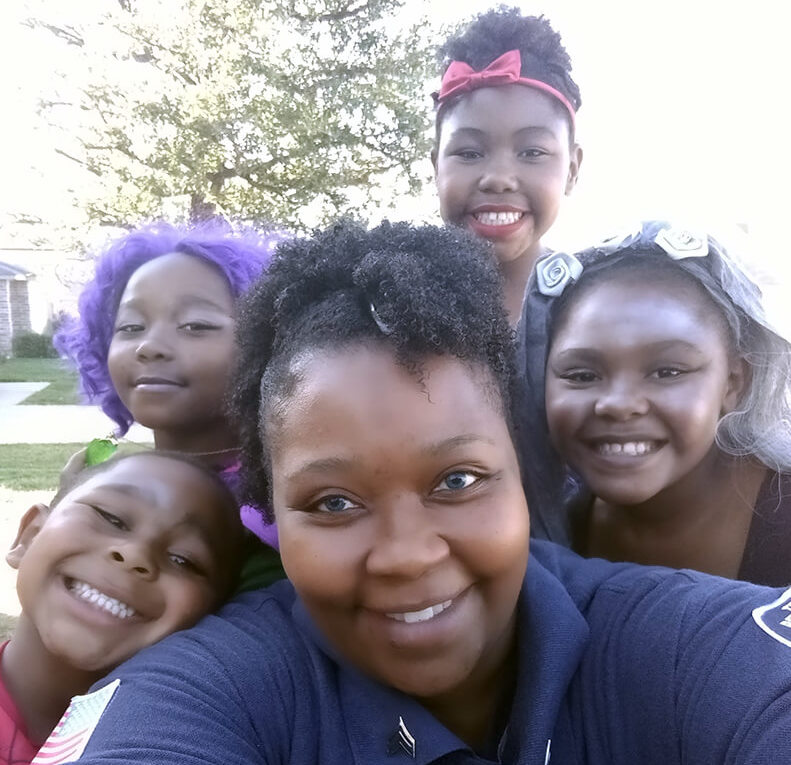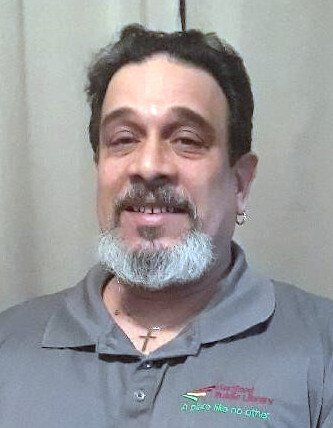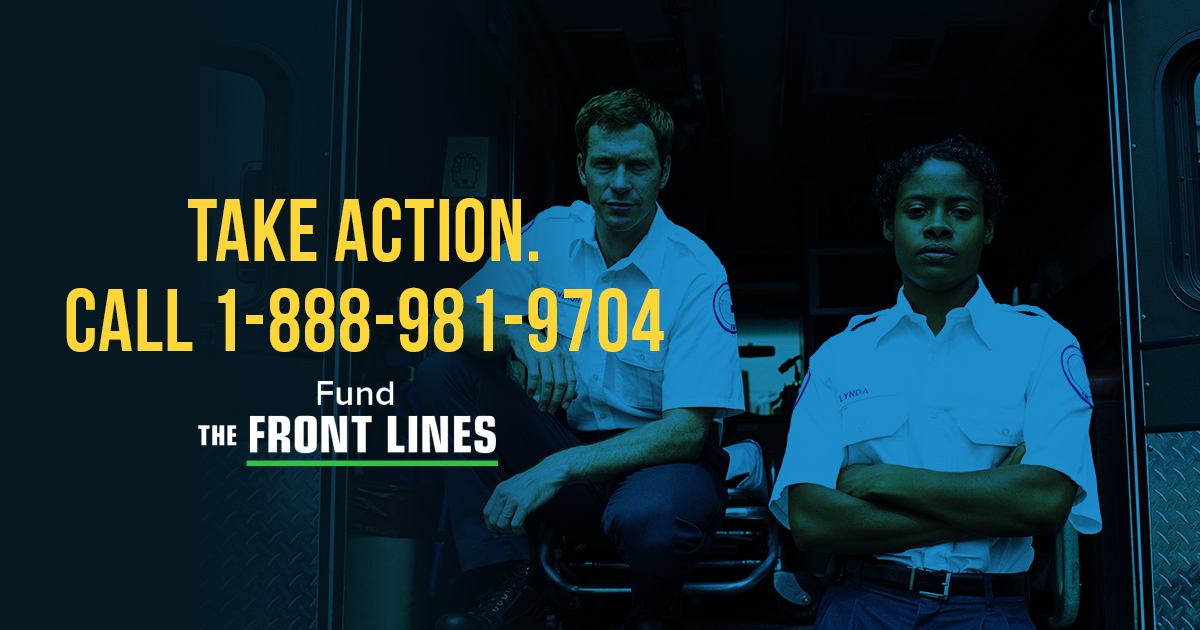
Front-line workers demand COVID-19 aid for beleaguered local, state governments

Tanisha Woods and family
Tanisha Woods is a correctional officer at a women’s prison in Gatesville, Texas. To the best of her knowledge, none of the 1,300 offenders nor the 600 staff at her facility have shown symptoms of COVID-19 infection – but no one is taking any chances.
“The fear is there, but this is my job,” said Woods, President of AFSCME Local 3920. “I can’t let that cripple me. I can’t do less because of fear. I just think positive and try to be knowledgeable about what’s going on in order to keep myself and [those I work with] safe. I am a woman of faith, so that’s what I hold on to as well.”
As a custodian at the Hartford, Connecticut Public Library, Leo Lafitte is on the front line when it comes to germ warfare. Although his library currently is closed to the public, employees are still required to come in to work twice a week and his job is to keep them safe.
Toward that end, he takes out the garbage, wipes down all of the surfaces, cleans the restrooms, mops the floors, and does maintenance on all facilities – just as he did full-time before COVID-19 forced work cutbacks.

Leo Laffitte
“We are on the front line most definitely,” said Lafitte, a member of AFSCME Local 17 and a District Vice President for AFSCME’s Council 4 (Connecticut). “Not everybody is as sanitary as you and I are. We have to provide those standards of cleanliness. That’s us. We have to provide that. When things like these episodes break out, we’re on the front lines.”
What workers like Woods and Laffitte have in common – in addition to belonging to AFSCME, the American Federation of State, County & Municipal Employees, a CHN member organization – is that they are among those most at risk of infection and, perhaps, of losing their jobs during a time of increasing budget worries on the state and local levels. And this week, they are coming together with many allies to demand that Congress pass a robust aid package for state and local governments in the next round of COVID-19 relief legislation. They are calling for at least $700 billion in federal funding, of which $200 billion would support education funding. A new analysis by the Center on Budget and Policy Priorities underscores the urgency of this request: over three years, the shortfall in state government revenue alone will be $650 billion, not counting losses to local governments.
On Thursday, April 30, AFSCME is leading a national call-in day to urge Congress to take action. The group’s call-in number is 1-888-981-9704 – feel free to share with others! You can also click here to send an email to your Representative and Senators. And click here to see AFSCME’s digital toolkit.
Las Vegas, Nevada, has been particularly hard hit by the coronavirus pandemic, with tourism halted and casinos, restaurants, and many hotels closed. Maria Ortiz-Huey, a member of AFSCME Local 4041, has been re-assigned to the state’s unemployment insurance office, fielding calls from the many frantic Nevadans who have lost their jobs.

Tell Congress to #FundTheFrontLines.
“We get so many calls each day, but we are helping people one by one and I’m particularly able to help the Spanish speakers,” Ortiz-Huey said. “It’s 12-hour days, but so many people have found themselves needing support right now, and we are here to help.”
Derrick Fields is a head custodian at Medina Middle School in Columbus, Ohio. These days, he is volunteering to assist in providing breakfast and lunch to kids in 13 locations during Ohio’s school shutdown. His greatest concern is ensuring the health and well-being of Columbus’ children once the schools re-open.
“If we fail to keep classrooms, gymnasiums and cafeterias clean, that means both students and staff risk getting sick or injured,” said Fields, President of OAPSE Local 580. “Amid the spread of a highly contagious and lethal virus, this work – although largely out of sight – becomes even more important in keeping our communities safe and healthy.”
AFSCME is not the only CHN member group demanding action to protect the safety and well-being of its members. For example, United Food and Commercial Workers (UFCW) is urging grocery stories and meat processing plants to provide employees with emergency pay hikes, flexible paid leave, comprehensive safety protocols and COVID-19 healthcare coverage.
And the Service Employees’ International Union (SEIU) is demanding that Congress pass a relief bill for local and state governments. “This pandemic and economic crisis have made it clear to everyone just how essential workers are in keeping families and communities going,” SEIU’s petition states. “Without immediate action by Congress, services our families rely on could be disrupted and more people could be thrown out of work.”
In a similar vein, the National Education Association is urging Congress to approve more federal aid to help state and local governments stabilize education funding. “A decade ago, during the Great Recession, state and local governments scrapped essential student services and laid off tens of thousands of educators,” NEA states. “We can’t let that happen again.”
For many workers such as Woods, the Texas correctional officer, the issue is not just safety or job security. It also is about respect.
“I have decided this is my career. I love what I do,” she said. “We risk our lives for the safety of offenders. We put our lives on the line. But sometimes we don’t get the respect we deserve.”

